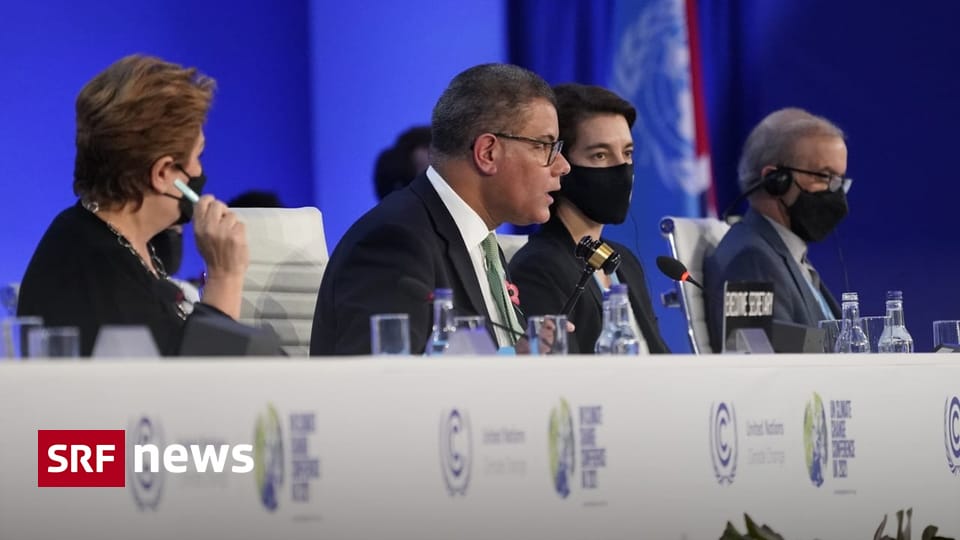- The United Nations climate conference in Glasgow for the first time called on countries in the world to begin phasing out coal.
- The declaration, approved by nearly 200 countries on Saturday, also called for the abolition of “ineffective” oil, gas and coal subsidies.
- However, the wording weakened at the last moment under pressure from China and India.
European Union Commissioner Frans Timmermans has expressed deep disappointment about the slowdown. Switzerland was also disappointed with the turnaround that eventually occurred, but gave up its resistance. However, Timmermans praised the demand to phase out coal as “historic”.
When several states bitterly complained about last-minute mitigations on Saturday night, shortly before the final vote, Britain’s COP26 chief Alok Sharma fought back in tears. “I beg your pardon for the way it went. I’m so sorry,” said the host.
“It is critical that we protect this package,” he added. Then his voice failed and he looked down. The delegates assisted him in this emotional moment with long applause.
on a voluntary basis
The two countries also jointly committed to the goal of holding global warming at 1.5 degrees compared to pre-industrial times. To that end, they should improve their previously inappropriate climate protection plans by the end of 2022. But this remains voluntary, there is no obligation.
So far, the plans presented are far from sufficient to achieve the 1.5-degree target agreed in Paris in 2015. The declaration states that for this to happen, global emissions of climate-damaging greenhouse gases must fall by 45 percent this decade.
Financial aid to poor countries
Poor countries have also promised more financial aid so that they can cope with the deadly consequences of the climate crisis in many places. Tens of millions of people already face more frequent and prolonged droughts and heat waves, or more violent storms and floods.
Specifically, this financial assistance will double by 2025, that is, from about 20 to about 40 billion dollars (about 35 billion euros). This is the first time that poor countries have called for a pot of money to be set up to help in case of damage and losses.
This refers to destruction or forced resettlement after drought, storms or hurricanes. Rich countries are being asked to pay for it. However, no specific amounts have been given for this. Technical Support should only be available after adverse events, but the entire damage should not be paid for.

“Tv specialist. Friendly web geek. Food scholar. Extreme coffee junkie.”






More Stories
Car or public transportation? The Swiss and Americans commute to work very differently
Pedro Sanchez is considering resigning after filing a complaint against his wife
Extreme heat warning in Thailand and the Philippines